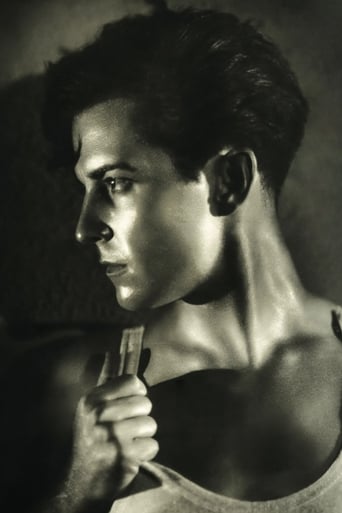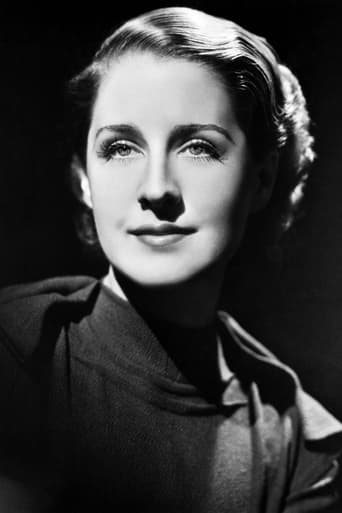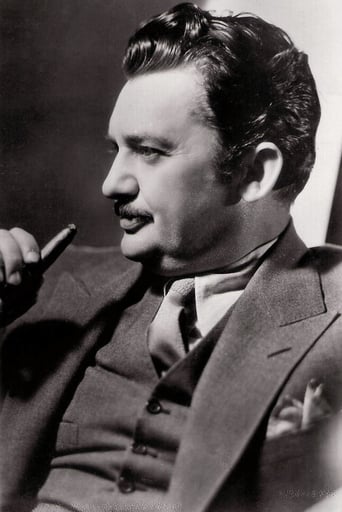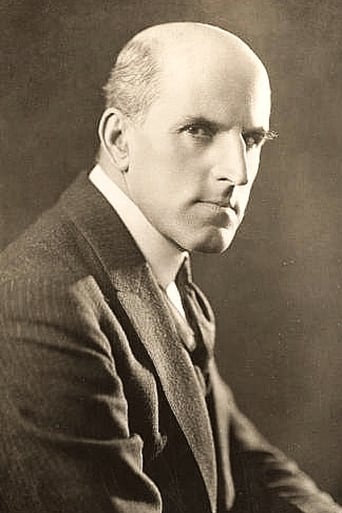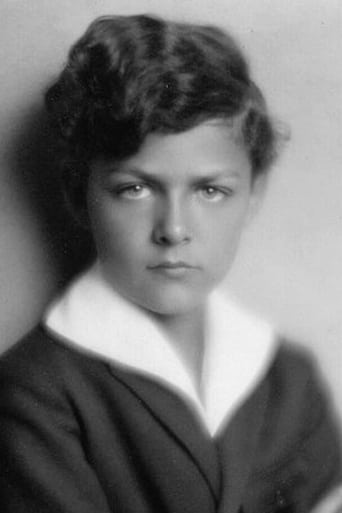Gutsycurene
Fanciful, disturbing, and wildly original, it announces the arrival of a fresh, bold voice in American cinema.
Richard Burin
*LOTS OF SPOILERS. A DOUBLE-WARNING, AS I DON'T WANT TO SPOIL THIS ABSOLUTE MASTERPIECE FOR YOU*When I'm writing about this one, I tend to run out of superlatives halfway through. It's the greatest film from one of Hollywood's greatest directors; a silent translation of a popular operetta, and as much fun, romance and heartache as most people can generally stand across an hour and three quarters.Ramon Novarro is the titular prince, the nephew of the king of Karlsburg, whose restrictive upbringing - one of "duty, obligation and loyalty" - goes out the window, however briefly, in a fug of love, friendship and beer, swirling (swilling?) across the old city of Heidelberg.The love - and the beer, for that matter - comes from an ethereal but down-to-earth, slightly cross-eyed barmaid (Norma Shearer): the guileless, glugging Kathi forever the high point of her screen achievements. Novarro himself wasn't blessed with the greatest range, but then you don't want J. Carrol Naish as your callow, conflicted young romantic, you want a sweet, sensitive, big-eyed kid with a seductive streak - and who more suitable than Novarro, a Latino sex symbol whose tenderness and vulnerability were all too real.You want your kindly professor, his sense of fun overriding his sense of decorum, played by someone with the chops and twinkle-in-the-eye of Jean Hersholt. And, of course, you want Lubitsch, the inimitable, irreplaceable Lubitsch, behind the camera, every scene handled with that "Lubitsch touch", every moment seeming to offer something new and extraordinary to bring a smile to your lips or a tear to your eye: Shearer checking out Novarro with absolutely no subtlety when they first meet, a garden-full of beer glasses raised with military precision, the look on the lead's face as his love interest downs an entire pint, the pair's spirited night-time excursion to the finest field in movies, and that heartbreaking return to Heidelberg, as heartfelt a paean to lost innocence and the youth that is never to return as the movies have ever served up.You can analyse the film a dozen different ways and it comes up faultless - from its abundance of visual metaphor, shifting perspectives used to illustrate the prince's changing moods, to the director's sparing use of intertitles, and the use of a groundbreaking shot in summation that predates The Long Good Friday by 53 years - but it all adds up to the same thing: a film for the ages, an emotionally overwhelming portrait of self-sacrifice, paradise lost and position found, of young lovers meeting like passing trains, together for a fleeting, shining moment, then torn away by "duty, obligation and loyalty". And it's all scored to perfection in the old Thames Silents version by the peerless Carl Davis."It must be wonderful to be a prince," muses one of the town kids, studying a portrait of Novarro. On this evidence, not so much, but then isn't life just about enjoying those perfect moments when they come? This film has more than almost any other.
MartinHafer
I have seen both sound and silent versions of this movie and I actually prefer the silent one--even though it was based on a musical! Maybe part of this is because I am not the biggest fan of musicals, but I think more of this has to do with how beautifully made this film is. The film was directed by the great Ernst Lubitsch--a man renowned for his deft artistic touch and romanticism in films. All this is so apparent in this film, as it is just a work of art--gorgeous and romantic through and through. The sets, camera-work and acting are all exquisite and help to make this a very memorable film. If you want to see a sound version, help yourself. But for me, this is THE definitive version of the film.
Costu-2
Who would guess that a SILENT-era version of a Sigmund Romberg musical chestnut like 'The Student Prince' could be so wonderful? The acting -- especially by the stunningly handsome Ramon Novarro in the title role and the glowing Norma Shearer as his love interest, a humble beer-hall girl -- is uniformly excellent. The settings and costumes are exceptional as well. The overall sepia glow that this film has adds to the sense that the viewer really IS seeing and experiencing "Old Heidelberg". The movie has it all : a little drama, a little humor, a little romance -- it is a confection that anyone who is willing to explore silent films is bound to find enjoyably sweet and memorable. HIGHLY recommended! (The version I saw also had a fantastic 'new' score by Carl Davis that added considerably to the atmosphere while supporting the action.)
